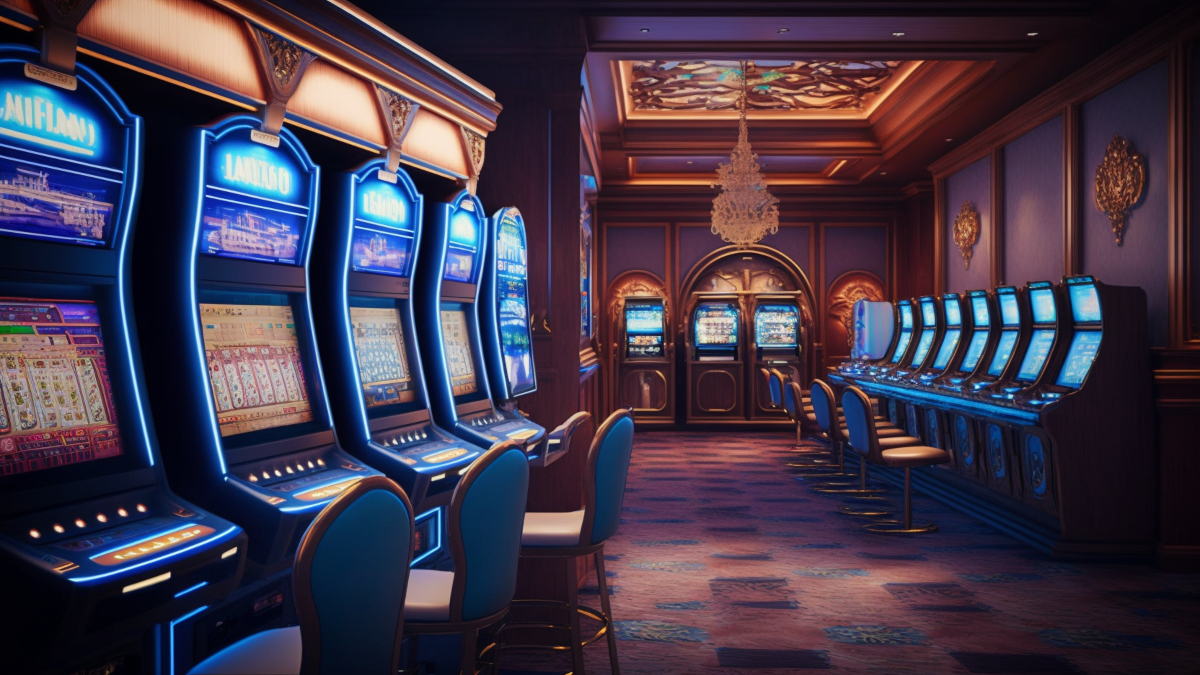A Societal Influence of Gambling Activities Across the Globe
admin
- 0
Casino games have long been a engaging source of amusement, drawing countless of players from different cultures around the globe. From the glitzy casinos of Vegas to the bustling gambling halls of the Chinese gambling capital, these games serve as a common thread that unites people across a variety of backgrounds. The allure of chance, strategy, and uncertainty entices not only those looking to strike it rich but also those in search of a feeling of belonging.

The influence of casino games extends well beyond the gaming floor. They often reflect the cultural standards and principles of the communities in which they thrive. Games such as poker, 21, and the wheel game have integrated into the fabric of mainstream culture, influencing various aspects from cinema to fashion. As we explore this captivating intersection of luck and life, we can better understand how gambling games shape and are affected by the surrounding world.
Historical Development of Casino Games
The roots of gambling games can be traced back to historical civilizations, where betting in various forms was widely practiced. Bearbrick888 In Ancient China, around two thousand three hundred years before Christ, a type of lottery known as Keno was popular, while in historic Rome, soldiers would frequently bet on the outcomes of their contests. The concept of using chance for entertainment and gain developed over the centuries, leading to the establishment of more formal games. By the final Middle Ages, gambling houses started to surface in European nations, especially in Italy, which brought forth early incarnations of famous games still played today.
As betting gained popularity in Europe, the 17th and 18th centuries saw the rise of gambling establishments as exclusive establishments for betting. The initial official gaming venue, the Ridotto, was established in the city of Venice in sixteen thirty-eight, providing activities like Baccarat games and Faro. This time marked a major turning point, as gaming venues commenced to draw not just the elite but also the expanding middle class. The sophistication of games increased, leading to the introduction of new regulations and versions that enriched the experience of players.
In the 19th century, the industrial age and shifts in societal conventions also altered the environment of gambling games. The arrival of the game of roulette and new one-armed bandits pulled in a broader clientele, and gambling establishments became seen as legitimate forms of entertainment. This time witnessed the globalization of gambling, as gambling houses spread from European nations to the New World, culminating in the establishment of the famous Strip of Las Vegas in the twentieth century. The progress of casino activities has continued into the present day, incorporating technology and online platforms, allowing them open to a global market.
# Cultural Importance in Various Communities
Casino activities have significant cultural value across a multitude of cultures across the world. In Las Vegas, the very essence of the urban landscape is woven around gambling establishments, where gaming is not just a hobby but a key aspect of social engagement and social interaction. The bright lights and lively atmosphere attract a vast audience, showcasing how casino games can influence local financial landscapes and local cultures. This environment transforms the notion of leisure into an enriching event that influences apparel, melodies, and even cinema.
Conversely, some cultures approach wagering with an air of caution, considering it through the lens of ethical considerations and heritage. For instance, in various Asian societies, games like Mahjongg and Pai Gow Gambling are steeped in history and have significant social meanings. These games are often played during meetings and occasions, fostering social ties and reinforcing familial ties. The act of participating in these games goes beyond mere entertainment, reflecting ethics such as deference to seniors and the significance of shared enjoyment.
At the same time, in continental countries such as Monte Carlo and the Italian Peninsula, games of chance serve as symbols of luxury and refinement. Bearbrick888 register The stylish atmosphere of these locations attracts both tourists and native inhabitants, maintaining a sense of prestige and exclusivity. The art of Texas Hold’em and the strategic elements of games like baccarat are appreciated, influencing social dynamics and establishing an appeal that captivates a heterogeneous audience. This emphasizes how games of chance can simultaneously reflect and influence cultural perspectives towards danger, reward, and community interaction.
Economic Impact and Tourism
Casino games play a crucial role in the financial context of many areas, particularly those that rely heavily on tourism. The revenue produced from gambling establishments fuels local economies, creating jobs not only within the casinos but also but also in connected industries such as hotel management, restaurant services, and recreation. This surge of tourists, drawn by the allure of gambling and the overall casino experience, stimulates spending across multiple businesses, contributing to the economic health of the region.
The existence of casinos often leads to the development of infrastructure, including hotels, transportation systems, and recreational facilities. These developments are essential in improving the overall tourist experience, making destinations more appealing to tourists. Additionally, many casinos invest in local communities through support of activities and philanthropic activities, further integrating themselves into the community structure of the locality. Such contribution not only supports economic growth but also cultivates a positive image of the gambling sector.
Moreover, the global popularity of casino games drives competitive tourism, with locations vying to attract players from around the world. Iconic destinations like Las Vegas and Macau have become synonymous with casino culture, drawing millions annually. This advantage encourages creativity and diversification within the gaming industry, influencing developments in leisure and accommodation that resonate beyond their limits. The ripple effects of this visitor influx extend wide, impacting local economies and cultural interactions on a worldwide scale.